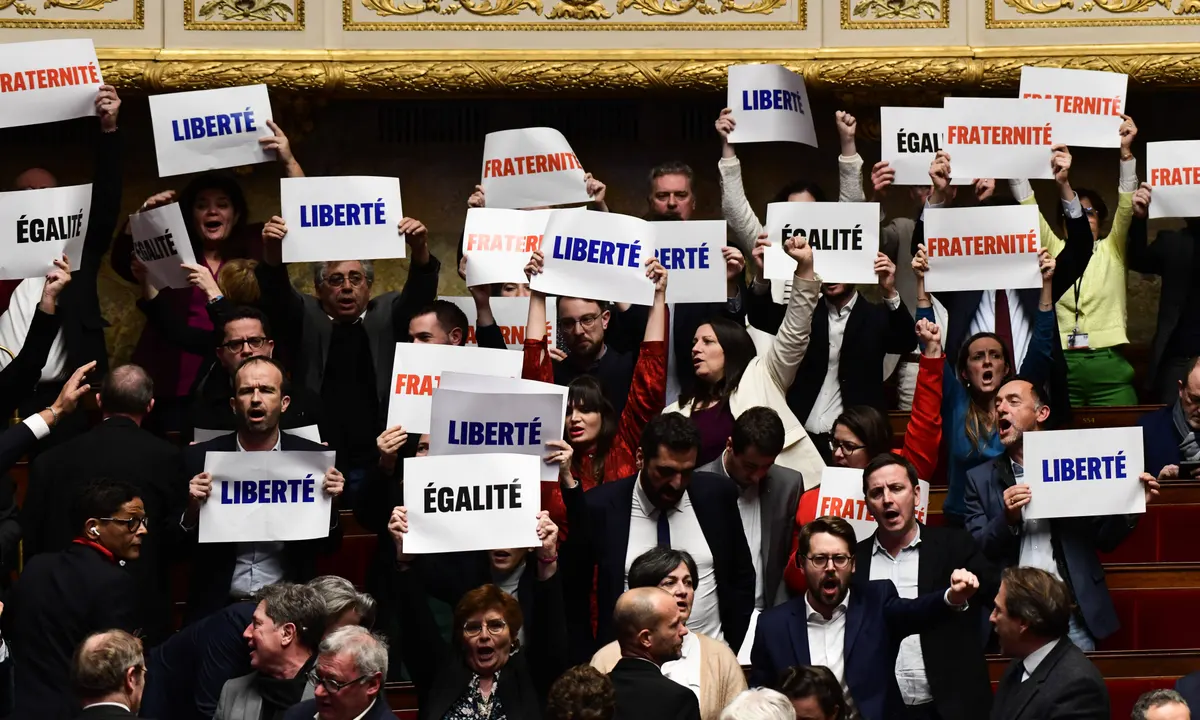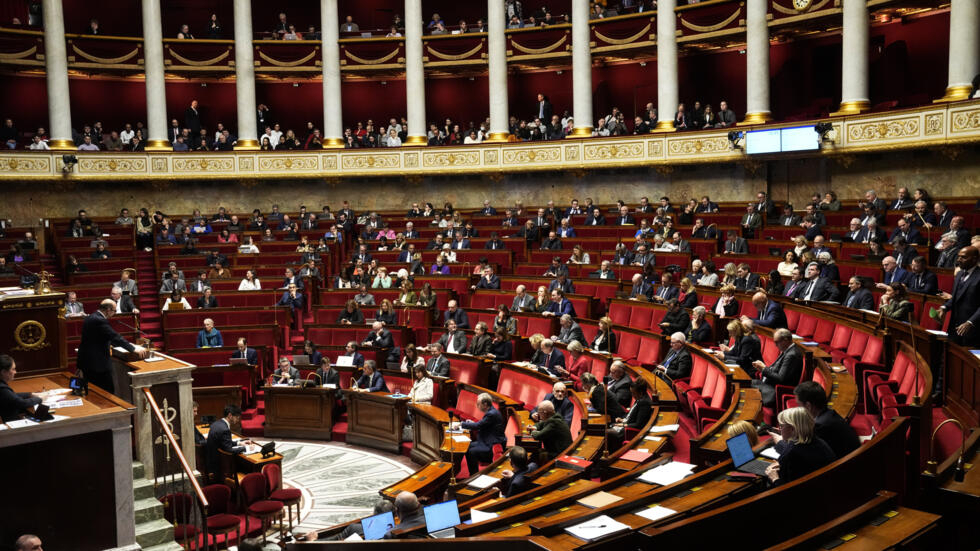Macron's Delicate Compromise As Controversial Immigration Bill Divides His Party
President Emmanuel Macron's delicate compromise as controversial immigration bill divides his party, which is a significant legislative victory for President Emmanuel Macron.
Author:Darren McphersonReviewer:Camilo WoodDec 20, 202326.3K Shares548.6K Views

President Emmanuel Macron's delicate compromise as controversial immigration bill divides his party, which is a significant legislative victory for President Emmanuel Macron.
The bill, securing 349 votes in favor and 186 against during a late-night session in the National Assembly, reflects Macron's challenging position of keeping far-right populism at bay while facing internal dissent.
Key Provisions Of The Immigration Bill
The National Assembly, where Macron's centrist party lacks an absolute majority, witnessed an unusual alignment of forces. Notably, 37 members from Macron's own party voted against the bill, signaling internal dissent.
Surprisingly, all 88 far-right lawmakers supported the government's proposals, a rare move that highlighted the bill's conservative leanings.
The immigration overhaul introduces one-year, temporary residency permits for skilled workers in labor-strapped fields, streamlining the asylum process.
However, it simultaneously enforces stricter rules for foreigners to work, live, or study in France. Notable provisions include delayed access to state subsidies for housing or family allowances, challenges for family reunification, and new visa fees for foreign students.
Macron's Uncomfortable Position
The bill's approval follows a week of political turmoil after the initial version faced rejection, deemed either too harsh or lenient by opposing sides.
Macron's government, in an effort to break the deadlock, incorporated tougher measures that garnered support from conservative lawmakers but deepened divisions within Macron's own party.
The compromises made to secure the bill's passage have placed Macron in a precarious situation. Caught between internal dissent and accusations of embracing right-wing ideologies, Macron faces challenges in maintaining his centrist image.
Speculations about ministerial resignations add to the uncertainty surrounding the aftermath of this tumultuous vote.
Ideological Victory For Far-Right
The far-right National Rally party, led by Marine Le Pen, hailed the bill as an "ideological victory." Le Pen asserted that the compromise marked a significant step in aligning with their anti-immigration platform.
Critics argue that Macron's support for a bill reflecting right-wing beliefs compromises his commitment to liberal democracy.
Macron's government contends that tougher immigration rules are essential to address security concerns, including the deportation of convicted foreign criminals.
Despite facing criticism for aligning with right-wing sentiments, recent polls indicate significant public support (60-80%) for stricter immigration rules, complicating Macron's efforts to strike a balance.
“„I won’t forget all the people who voted for me because they wanted to oppose Marine Le Pen. Now he’s doing the opposite and paving the way for her.- Vincent Martigny, a professor of political science at the University of Nice
Ongoing Concerns And Reactions
Labor unions, migrant advocacy groups, and humanitarian associations express concerns about the bill's impact on integration and France's universalist social model.
The independent ombudsman responsible for monitoring civil and human rights warns that the bill undermines the principles of equality and nondiscrimination.
The political fallout extends to Macron's ruling centrist party, with internal divisions exposed by the strict immigration law.
Health Minister Aurélien Rousseau's resignation threat reflects the discontent within Macron's government. The aftermath of this legislation raises questions about Macron's leadership and his ability to navigate the complex landscape of French politics.
Final Words
France's immigration overhaul reflects a delicate balancing act for Macron, testing his commitment to centrist principles amid internal dissent and right-wing pressures.
The far-reaching consequences of this legislation may shape the political landscape, impacting Macron's image and the dynamics of French politics in the foreseeable future.

Darren Mcpherson
Author
Darren Mcpherson brings over 9 years of experience in politics, business, investing, and banking to his writing. He holds degrees in Economics from Harvard University and Political Science from Stanford University, with certifications in Financial Management.
Renowned for his insightful analyses and strategic awareness, Darren has contributed to reputable publications and served in advisory roles for influential entities.
Outside the boardroom, Darren enjoys playing chess, collecting rare books, attending technology conferences, and mentoring young professionals.
His dedication to excellence and understanding of global finance and governance make him a trusted and authoritative voice in his field.

Camilo Wood
Reviewer
Camilo Wood has over two decades of experience as a writer and journalist, specializing in finance and economics. With a degree in Economics and a background in financial research and analysis, Camilo brings a wealth of knowledge and expertise to his writing.
Throughout his career, Camilo has contributed to numerous publications, covering a wide range of topics such as global economic trends, investment strategies, and market analysis. His articles are recognized for their insightful analysis and clear explanations, making complex financial concepts accessible to readers.
Camilo's experience includes working in roles related to financial reporting, analysis, and commentary, allowing him to provide readers with accurate and trustworthy information. His dedication to journalistic integrity and commitment to delivering high-quality content make him a trusted voice in the fields of finance and journalism.
Latest Articles
Popular Articles
